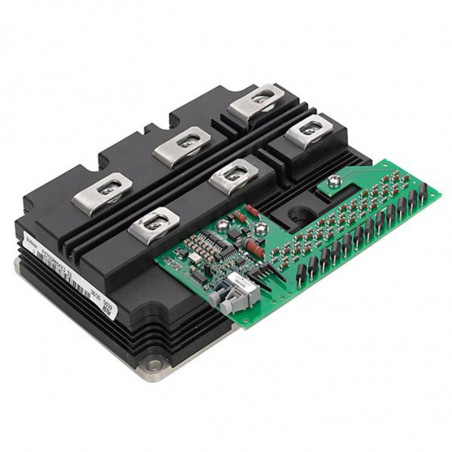
In the fast-evolving landscape of modern technology, IGBT modules have emerged as vital components in power electronics. These modules, comprising insulated gate bipolar transistors, provide crucial functionality in various applications where efficient power control is essential. From industrial machines to renewable energy systems, automotive drives to consumer electronics, the versatility and performance of IGBT modules make them instrumental in optimizing power usage and enhancing overall system efficiency.
With their unique ability to handle high voltage and current levels while offering fast switching speeds, IGBT modules play a significant role in enabling precise control over power flow. This capability not only enhances the performance of electronic systems but also contributes to energy conservation and cost-effectiveness. Understanding the principles behind IGBT modules and harnessing their potential can unlock a new realm of possibilities in power electronics design and implementation.
Benefits of IGBT Modules
IGBT modules offer enhanced efficiency in a variety of applications, thanks to their ability to switch high voltages at rapid speeds. This attribute allows for precise control over power flow, minimizing energy losses and improving overall system performance.
Another key benefit of IGBT modules is their high power handling capacity. By combining the output characteristics of both bipolar and MOSFET transistors, these modules can efficiently handle large amounts of power while maintaining reliability and stability.
Moreover, IGBT modules are ideal for applications requiring variable speed control, such as motor drives and renewable energy systems. Their robust design and low switching losses make them a preferred choice for industries seeking to optimize energy consumption and reduce operating costs.
Applications of IGBT Modules
IGBT modules find wide applications in various industries, ranging from renewable energy to transportation. In the field of renewable energy, IGBT modules are crucial components in solar inverters, helping to convert DC power from solar panels into usable AC power for homes and businesses. Their ability to handle high voltage and current levels makes them ideal for such demanding applications.
IGBT Module
In the automotive industry, IGBT modules play a vital role in electric and hybrid vehicles. These modules are used in the power electronics systems of electric vehicles to efficiently manage the flow of electric power between the battery, motor, and other components. Their high switching frequency and low power losses make them essential for maximizing the efficiency of electric drivetrains.
IGBT modules are also extensively used in industrial motor drives, where they control the speed and torque of electric motors in various applications such as conveyor systems, pumps, and compressors. The robust design of IGBT modules allows for reliable operation in harsh industrial environments, ensuring smooth and precise motor control for enhanced productivity.
Considerations when using IGBT Modules
When utilizing IGBT modules, it is crucial to pay attention to heat dissipation. These modules can generate significant amounts of heat during operation, necessitating proper cooling mechanisms to ensure optimal performance and longevity.
Another key consideration is voltage and current ratings. It is essential to adhere to the specified voltage and current limits outlined by the manufacturer to prevent potential damage to the IGBT module and associated components.
Additionally, understanding the switching frequency requirements is paramount. Different applications may have varying switching frequency demands, and ensuring that the IGBT module is compatible with these requirements is essential for successful operation.


